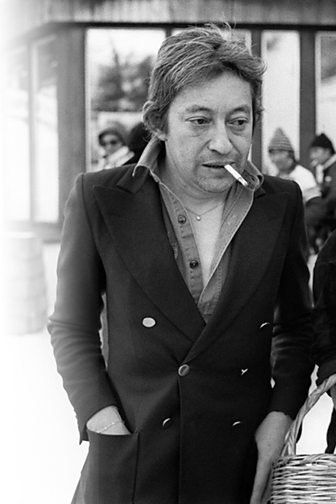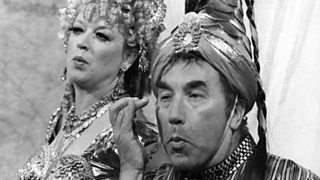Je t'aime... moi non plus
Euro-sex hits the UK charts!
| Fact title | Fact data |
|---|---|
| Release date: |
1969
|
| Written by: |
Serge Gainsbourg
|
| First recorded by: |
Serge Gainsbourg and Brigitte Bardot
|
| Also recorded by: |
Serge Gainsbourg and Jane Birkin, Robbie Williams, Frankie Howerd and June Whitfield, Judge Dread, Einsterzunde Neubauten, Psychic TV, Giorgio Moroder and Donna Summer, Hot Butter
|
Synopsis
"Je vais et je viens, entre tes reins" ("I go and I come, between your kidneys")Je T'Aime
You may argue that ‘Je T’Aime… ‘ represents the only non-British entry into our choice of 50 records that define our history, but remember - despite it being sung/spoken/gasped in French - that half of the duo that recorded it was a British actress and it was recorded in a British studio (near Marble Arch, if you’re interested). In addition it also gained the top spot in the UK charts.
But as to whether it’s the strangest entry in our list is a moot point. For how many songs can you say were inspired by Salvador Dali, described by their author as an ‘anti-f***’ song and yet were banned for their alleged erotic content? Come to think of it, how many other songs would have a line that translates as "I go and I come, between your kidneys"?
Originally written by Serge Gainsbourg for his current lover, Brigitte Bardot in 1967, the first recording was shelved due to the fact that Bardot and Gainsbourg were having a secret affair and the actresss didn’t want to further anger her husband of the time after he heard reports of the somewhat steamy session which produced the record.
Undeterred, Serge subsequently offered the duet to his next lover, English actress Jane Birkin and, in 1969, a classic was born. As with everything with the man who once (crudely) propositioned Whitney Houston on live TV, Gainsbourg’s song was undoubtedly meant to provoke, and here he succeeded in spades. The cheesy organ riff topped by the breathy exhortations of the pair meant that as it reached number two in the UK it was withdrawn from sale. It was up to Gainsbourg to renegotiate a record contract and get it re-released and to the number one slot. The Vatican denounced it, and no one would play it in the USA. But to a generation of younger people it wasn’t the free love of the counterculture that ushered in the sexual revolution but the distinctly Gallic strains of a man who’d made his reputation by producing the girly pop known as Yé-yé.
Inspiring hundreds of cover versions (many of them comic) ‘Je T’Aime’ definitely marks the moment when (simulated) sex entered the consciousness of British music lovers.
Clips
Related Links

-
![]()
From the steamy to the silly...





